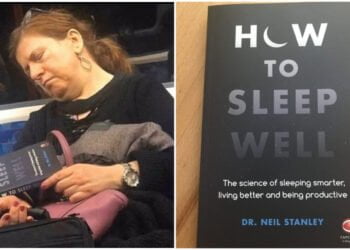
FREE AUDIO BOOK, SCROLL DOWN
🚀 The Book in 3 Sentences
1) Real change comes from the compound effects of hundreds of small decisions or habits that over time accumulate to produce remarkable results.
2) To achieve our goals we need to first build systems made of single processes and habits that will take us to our goals.
✍️ Top 3 Quotes
1) Success is the product of daily habits—not once-in-a-lifetime transformations.
2) Time magnifies the margin between success and failure. It will multiply whatever you feed it. Good habits make time your ally. Bad habits make time your enemy.
3) Goals are about the results you want to achieve. Systems are about the processes that lead to those results.
📒 Summary + Notes
What are habits?
— Habits are the compound interest of self-improvement.
And when we repeat 1% errors, day after day, through replicating poor decisions, duplicating tiny mistakes, and rationalising little excuses, our small choices compound into toxic results.
We can employ four behavior change principles to establish positive habits and overcome negative ones.
A single habit is made of a cue, craving, response, and reward. And these components are formed according to the 4 laws of behaviour change:
1) Make it obvious – the habit needs to be effortless for us and require no active thinking. For example, when I had a hard time remembering to take my Vitamin D pills. I realised that the problem was that I kept these pills on the other side of the kitchen. Once I put them in the obvious spot that I couldn’t miss, I started taking them more regularly.
2) Make it attractive – if the habit is unattractive we likely won’t have enough willpower to do it over and over. Therefore, you should come up with some ways to make the habit attractive even if it’s something hard like going to a gym or studying for long hours. For me, it was restricting my fantasy audiobooks listen-time to when I was at the gym which made the whole workout thing much more pleasurable.
4) Make it immediately satisfying – our brain rewards immediate returns so it’s good to come up with something simple that brings us joy right after we perform our habit. Every time I go to the gym, I hop into a pool and spend 10 to 20 minutes in a spa. I know that it sounds a bit excessive but this little routine makes me much more optimistic about spending an hour or two in the gym.
It takes time to build a habit or break a bad one and that’s why most people quit halfway.
Time magnifies the margin between success and failure. It will multiply whatever you feed it. Good habits make time your ally. Bad habits make time your enemy.
If you find yourself struggling to build a good habit or break a bad one, it is not because you have lost your ability to improve. It’s often because you’ve not yet crossed the Plateau of Latent Potential. Complaining about not achieving success despite working hard is like complaining about an ice cube not melting when you heated it from twenty-five to thirty-one degrees. Your work was not wasted, it’s just being stored. All the action happens at thirty-two degrees.
San Antonio Spurs, one of the most successful teams in NBA history, have a quote from social reformer Jacob Riis hanging in their locker room:
“When nothing seems to help, I go and look at a stonecutter hammering away at his rock, perhaps a hundred times without as much as a crack showing in it. Yet at the hundred and first blow it will split in two, and I know it was not that last blow that did it—but all that had gone before.”
Summary:
Within the pages of ‘Atomic Habits’ by James Clear lies a powerful roadmap to personal transformation. Clear’s insights illuminate the path to success, showing how small, consistent actions can lead to remarkable outcomes. By understanding the science of habits and embracing the ‘atomic’ approach, readers are empowered to take charge of their lives. With every page, the book encourages us to envision our potential and guides us to cultivate habits that shape a brighter, more fulfilling future. ‘Atomic Habits’ is a beacon of inspiration, reminding us that progress is built one positive choice at a time.
Get your free Audio book here


















